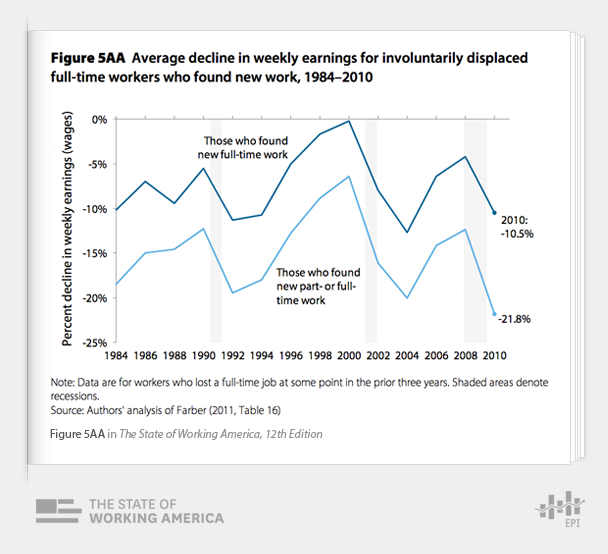When workers get laid off, they typically pay a large economic price. This is true even for those lucky enough to find a new job, because most tend to earn wages substantially lower than what they earned previously. The figure below, from The State of Working America, 12th Edition, shows the average weekly earnings loss of workers who were laid off from a full-time job in the prior three years. Workers who lost a full-time job in 2007–2009 but were reemployed in either full– or part-time jobs in 2010 faced weekly wage cuts of 21.8 percent. Some of this drop is due to the large increase in people settling for part-time work because full-time work is not available. But even restricting the analysis to only displaced workers who were able to find another full-time job, the drop is still a staggering 10.5 percent.
Data show that the number of people being laid off each month is no longer elevated. However, job openings and hiring are still very weak relative to pre-recession levels, so the consequences of being laid off remain severe.

